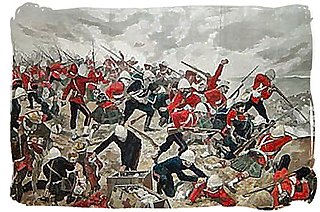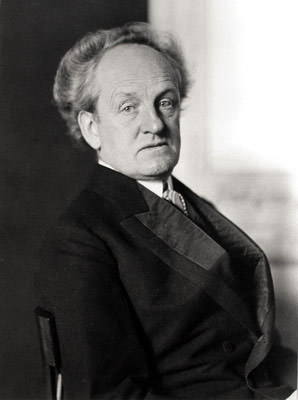Related Research Articles

Henri-Louis Bergson was a French philosopher who was influential in the tradition of analytic philosophy and continental philosophy, especially during the first half of the 20th century until the Second World War, but also after 1966 when Gilles Deleuze published Le Bergsonisme. Bergson is known for his arguments that processes of immediate experience and intuition are more significant than abstract rationalism and science for understanding reality.
1931 (MCMXXXI) was a common year starting on Thursday of the Gregorian calendar, the 1931st year of the Common Era (CE) and Anno Domini (AD) designations, the 931st year of the 2nd millennium, the 31st year of the 20th century, and the 2nd year of the 1930s decade.
1859 (MDCCCLIX) was a common year starting on Saturday of the Gregorian calendar and a common year starting on Thursday of the Julian calendar, the 1859th year of the Common Era (CE) and Anno Domini (AD) designations, the 859th year of the 2nd millennium, the 59th year of the 19th century, and the 10th and last year of the 1850s decade. As of the start of 1859, the Gregorian calendar was 12 days ahead of the Julian calendar, which remained in localized use until 1923.

1881 (MDCCCLXXXI) was a common year starting on Saturday of the Gregorian calendar and a common year starting on Thursday of the Julian calendar, the 1881st year of the Common Era (CE) and Anno Domini (AD) designations, the 881st year of the 2nd millennium, the 81st year of the 19th century, and the 2nd year of the 1880s decade. As of the start of 1881, the Gregorian calendar was 12 days ahead of the Julian calendar, which remained in localized use until 1923.
1927 (MCMXXVII) was a common year starting on Saturday of the Gregorian calendar, the 1927th year of the Common Era (CE) and Anno Domini (AD) designations, the 927th year of the 2nd millennium, the 27th year of the 20th century, and the 8th year of the 1920s decade.
Events from the year 1919 in literature .
This article contains information about the literary events and publications of 1927.
This article contains information about the literary events and publications of 1859.

The Lycée Henri-IV is a public secondary school located in Paris. Along with the Lycée Louis-le-Grand, it is widely regarded as one of the most prestigious and demanding sixth-form colleges (lycées) in France.

Moina Mathers, born Mina Bergson, was an artist and occultist at the turn of the 20th century. She was the sister of French philosopher Henri Bergson, the first man of Jewish descent to be awarded the Nobel Prize for Literature in 1927. She is, however, more known for her marriage to the English occultist, Samuel Liddell MacGregor Mathers, one of the founders of the organisation Hermetic Order of the Golden Dawn and, after his death in 1918, for being the head of a successor organisation, called the Rosicrucian Order of the Alpha et Omega.
Events from the year 1914 in France.
Events from the year 1941 in France.
Events from the year 1924 in France.
Events from the year 1913 in France.
Events from the year 1907 in France.
Events from the year 1859 in France.
Events in the year 1927 in Germany.

The 1950 Nobel Prize in Literature was awarded the British philosopher Bertrand Russell (1872–1970) "in recognition of his varied and significant writings in which he champions humanitarian ideals and freedom of thought." He is the fourth philosopher to become a recipient of the prize after the French analytic-continental philosopher Henri Bergson in 1927, and was followed by the French-Algerian existentialist Albert Camus in 1957. He is also the fifth British author to be awarded.

The 1912 Nobel Prize in Literature was awarded to the German dramatist and novelist Gerhart Hauptmann (1862–1949) "primarily in recognition of his fruitful, varied and outstanding production in the realm of dramatic art." He is the fourth German author to become a recipient of the prize after Paul Heyse in 1910.

The 1928 Nobel Prize in Literature was awarded to the Danish-born Norwegian novelist Sigrid Undset (1882–1949) "principally for her powerful descriptions of Northern life during the Middle Ages." She is the third female recipient of the literature prize.
References
- ↑ "The Nobel Prize in Literature 1927 - Henri Bergson". Nobelprize.org. Retrieved 25 February 2013.